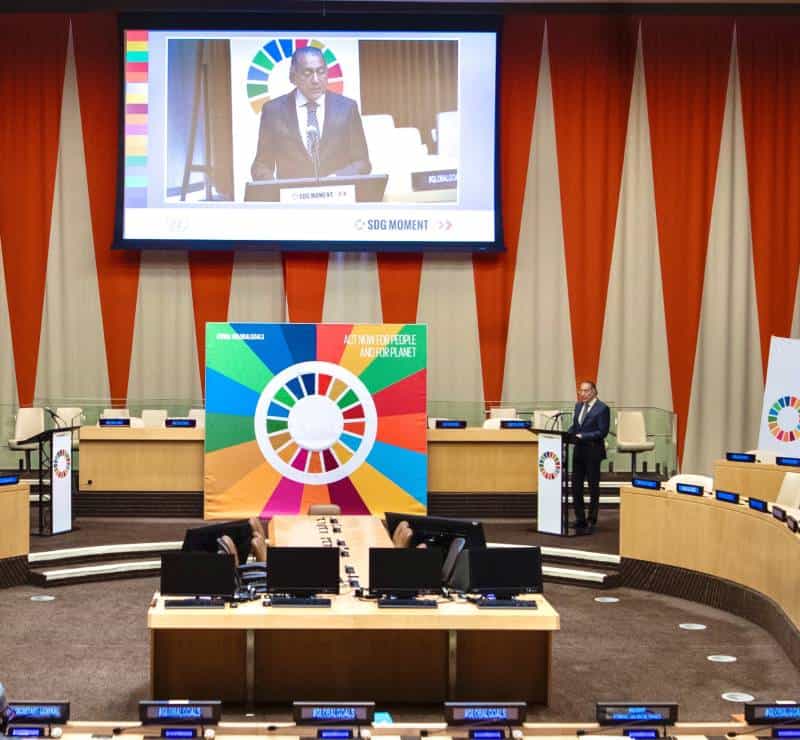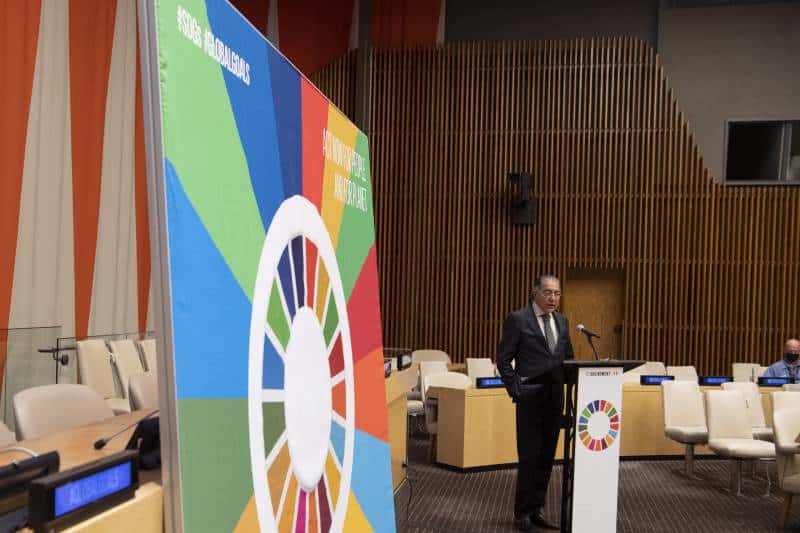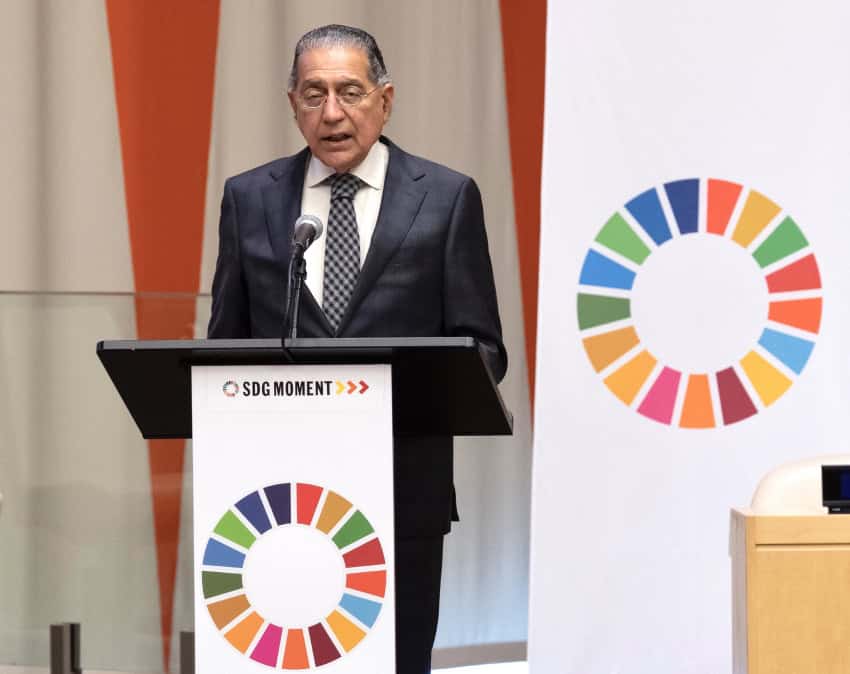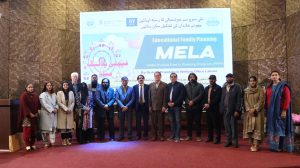UNITED NATIONS – Pakistan’s Ambassador Munir Akram, in his capacity as the President of United Nations Economic and Social Council (ECOSOC), has renewed his call for redoubling efforts to achieve the Sustainable Development goals (SDGs) aimed at ending poverty, fighting inequalities and tackling climate change.
Addressing a major UN event, he underscored that the highest priority was to control the coronavirus pandemic which has inflicted unparalleled human suffering, killing a million people worldwide, with hundreds of millions are at risk.
“The global magnitude of the challenge we are facing today from the COVID pandemic is the greatest since the creation of the United Nations,” the ECOSOC president said at a high-level side event of the General Assembly on Friday.
In his remarks at the inaugural ‘SDG Moment’ event, he highlighted three challenges facing member states: the COVID-19 health and economic crisis, the realization of the SDGs and the existential threat of climate change.
“My own priorities as president of the Economic and Social Council is to focus on practical actions,” he told world leaders in the virtual event.
“We need to find the financing required to respond to the COVID 19 pandemic and to build back better,” Akram said, noting that the IMF Managing Director has estimated that developing countries will need over $2.5 trillion to recover from the current COVID induced recession.
In this regard, the proposals discussed in the initiative launched by the UN Secretary-General, Canada and Jamaica, will be followed up in ECOSOC’s forum on financing for development to ensure that commensurate commitments will be made to make that degree of financing available.
Sustainable infrastructure, he said, was the key to promoting all 17 SDGs. “We need to focus on investment in sustainable infrastructure, renewable energy, transportation, housing, water, sanitation,” he said, adding an additional investment of over $1.5 trillion annually in sustainable infrastructure was essential.
The ECOSOC president said he had proposed the establishment of an infrastructure investment facility as a public-private partnership to accelerate sustainable infrastructure development in developing countries.
He also stressed the need to find ways to bridge the digital divide between the developed and developing countries.
Earlier, Secretary-General Antonio Guterres noted that in embarking on a Decade of Action to deliver the SDGs by 2030, we must “strike out for a world of dignity and opportunity for all on a healthy planet”.
“We must look beyond the current crisis and set our sights high…to show that transformation is possible and is happening right now”, he said.
The UN chief painted a vivid picture of a world “shaken to the core” – by the COVID-19 pandemic “pushing us towards the worst recession in decades”, causing widespread disruption, rising hunger, skyrocketing debt, plunging fiscal resources and threatening children’s education.
Even before the virus, inequalities were growing, he pointed out, noting that globalization benefits had failed to reach “millions upon millions of destitute people” as greenhouse gases soared to record levels.
“We need a path that brings health to all, revives economies, brings people in from the margins of society and builds long-term resilience, sustainability, opportunity and peace”, outlined the UN chief.
He said the pandemic has undercut the very fragilities that the 2030 Agenda was designed to address – to end poverty and leave no one behind.
“The poor have a special claim on our efforts and energies and must be reached first” by expanding social protections, ensuring universal access to essential services, strengthening education, health systems and internet connectivity and placing women at the centre of decision-making, he detailed.
According to Guterres, the 2030 Agenda additionally demands transitioning to inclusive, low-carbon, resilient economies that deliver more jobs and a cleaner environment, which will not only reduce the risk of future pandemics but also mitigate the worst effects of climate change.

“In short, the 2030 Agenda provides the guiding light we need to end the pandemic, to respond to its socio-economic impacts and to chart a course for a transformative recovery”, he spelled out.
Underscoring that there is “no time to procrastinate”, the UN chief highlighted the three crucial areas of finance, COVID-19 recovery and greater ambition, moving forward.
On finance, he stressed the importance of addressing the immediate, medium and longer-term challenges faced by developing countries and pointed to an upcoming UN financing meeting on 29 September as “an opportunity to get behind the most significant policy options”, such as extending the Debt Service Suspension Initiative to at least the end of 2021.
Turning to COVID-19 recovery, Mr. Guterres asserted that plans must be inclusive and green to help countries transition to a more equitable and sustainable economy, including by using taxpayer’s money for a resilient recovery, ending fossil fuel subsidies and placing women at the centre of building back.
On the third priority, the UN chief argued that the world needs “ambition and solidarity” to provide the billions of dollars needed to deliver COVID-19 vaccines and treatments to everyone; cut carbon emissions in half; and protect biodiversity, achieve gender equality and fulfill the SDGs’ promises.

“When the public appetite for change is matched with political will and smart policy choices, rapid progress is unstoppable”, the Secretary-General said. “This annual SDG Moment is our opportunity to demonstrate that, as one united family of nations, we have what it takes to eradicate poverty and hunger, tackle climate change, deliver gender equality and achieve all 17 global goals”.
President of the General Assembly Volkan Bozkir, noted that the world needs “collaboration, cooperation and dialogue”, saying this was the kind of crux moment, for which the UN was built.
“Halting the spread of COVID-19 and regaining progress against the SDGs must be our collective priority”, he said, arguing that countries in special situations should be prioritized.
“It will not be easy, but the SDGs themselves provide us the very blueprint needed to recover, better”.
The head of the UN Development Fund (UNDP), Achim Steiner said that for the first time in 30 years, the march of progress in human development, was expected to go sharply into reverse, maintaining that social protection solutions were key to protect communities worldwide.
“Building people’s resilience against vulnerability, risk and deprivation, and helping them to get on their feet if they falter, defines social protection in the 21st century”, he said.














